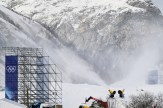This robot is going to map uncharted kelp forests in the Arctic
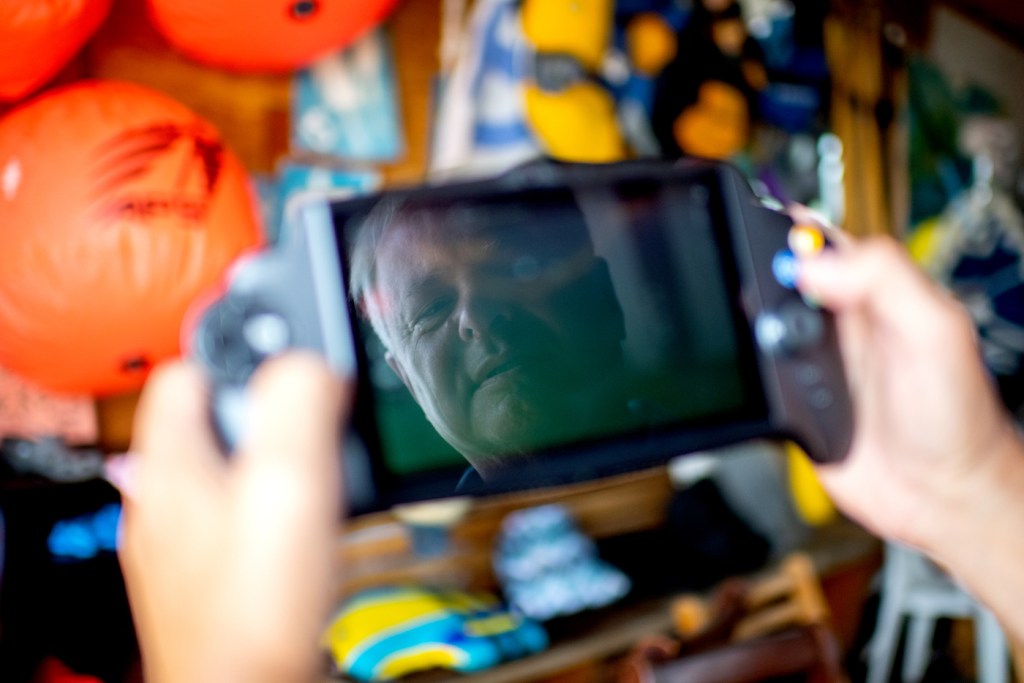
The last thing Mark Patterson hears before his underwater robot embarks on a mission is a recording of his eldest child’s voice: “Glug, glug, glug! I’m going on a dive!”
Once the robot’s antenna slips below the surface, the expedition is no longer in Patterson’s control. “I program the mission, but it’s up to the robot to make good choices,” says Patterson, professor of marine and environmental sciences at Northeastern.
After a day’s work collecting information about a specific ocean ecosystem, the robot equipped with sensors and cameras, returns to shore, announced by Patterson’s youngest child in 5-year-old soprano: “I’m back on the surface!”
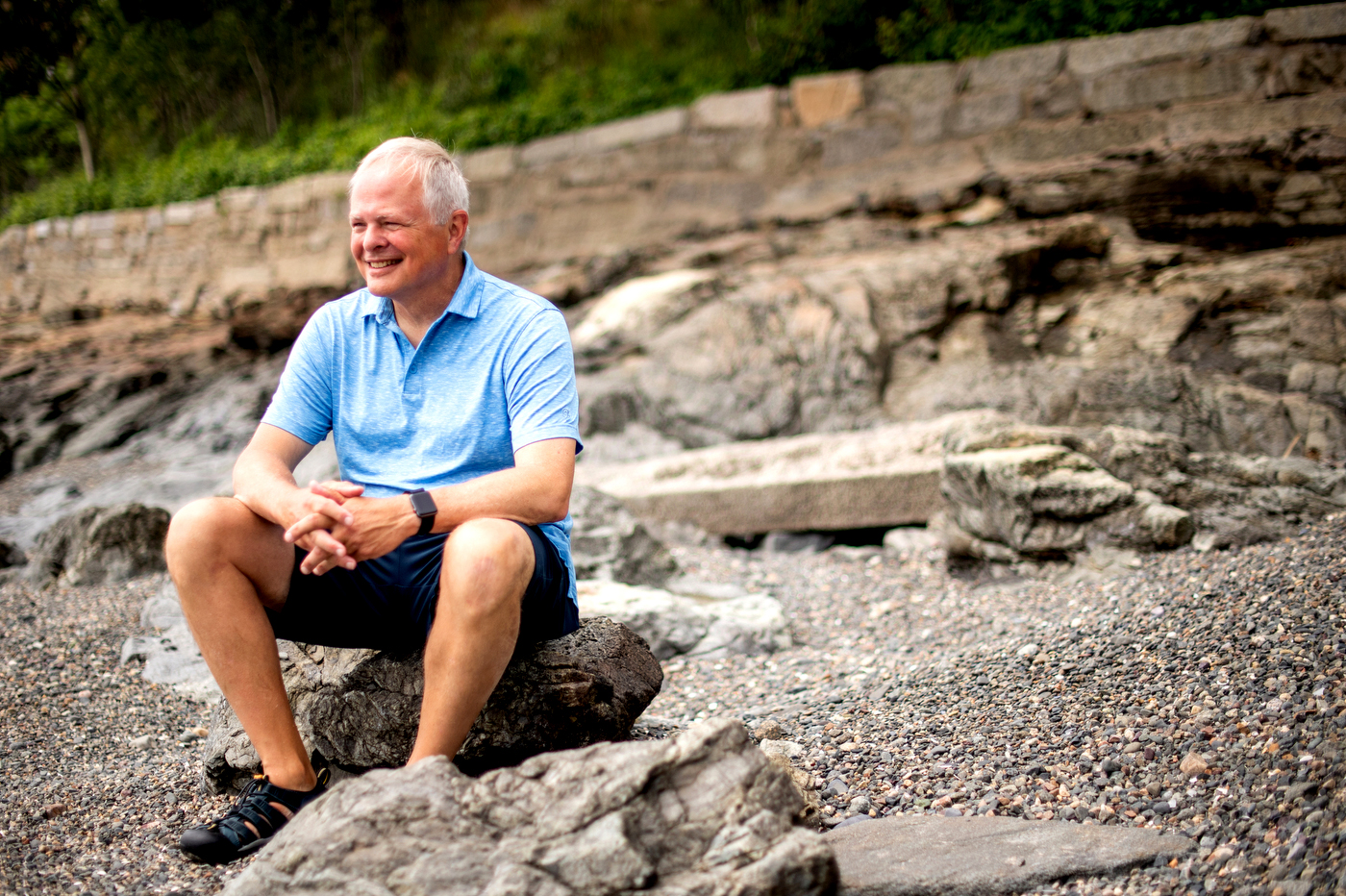
Mark Patterson, professor of marine and environmental sciences at Northeastern, recently received a Fulbright U.S. Scholar Award to facilitate his research mapping uncharted kelp forests in the Arctic. Photo by Matthew Modoono/Northeastern University
“I love when the robot comes home. I love hearing my kids’ voices,” he says.
Patterson developed Fetch, the autonomous underwater robot, in 1998 as a means to compile data about the ocean more efficiently than human divers. “You get a lot of bang for your buck with these robots,” he says. “You send them out for the day, and they come back with a huge pile of data. It’s exciting.”
In the past two decades, Fetch has investigated krill populations in the Antarctic ocean and coral-killing sea sponges in reefs in the Caribbean.
Now, Fetch will travel to the Canadian Arctic to explore kelp forests, an ecosystem largely uncharted by marine biologists. Patterson recently received a Fulbright U.S. Scholar Award to facilitate this research, which will be conducted in partnership with Université Laval in Quebec City.
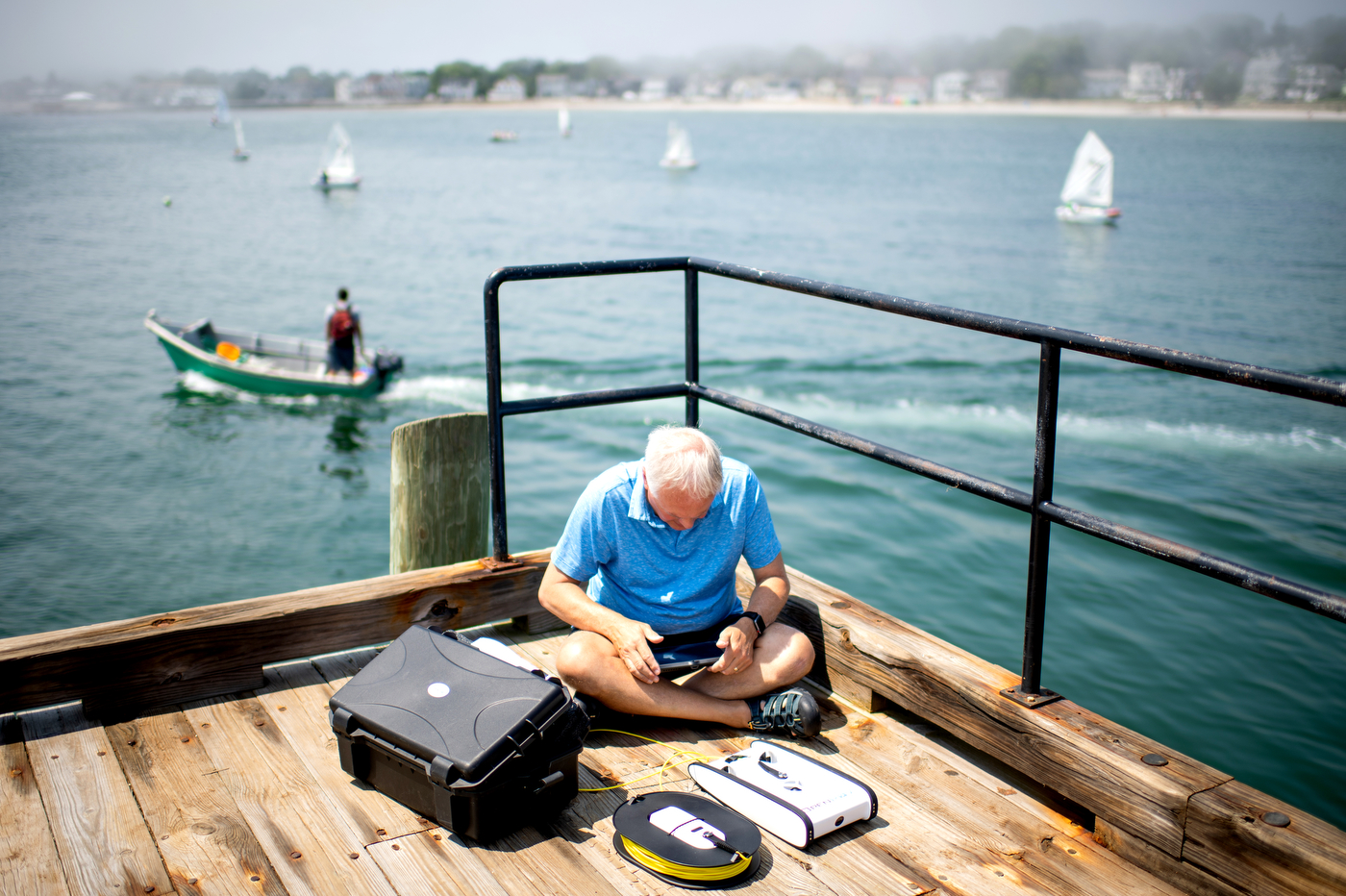
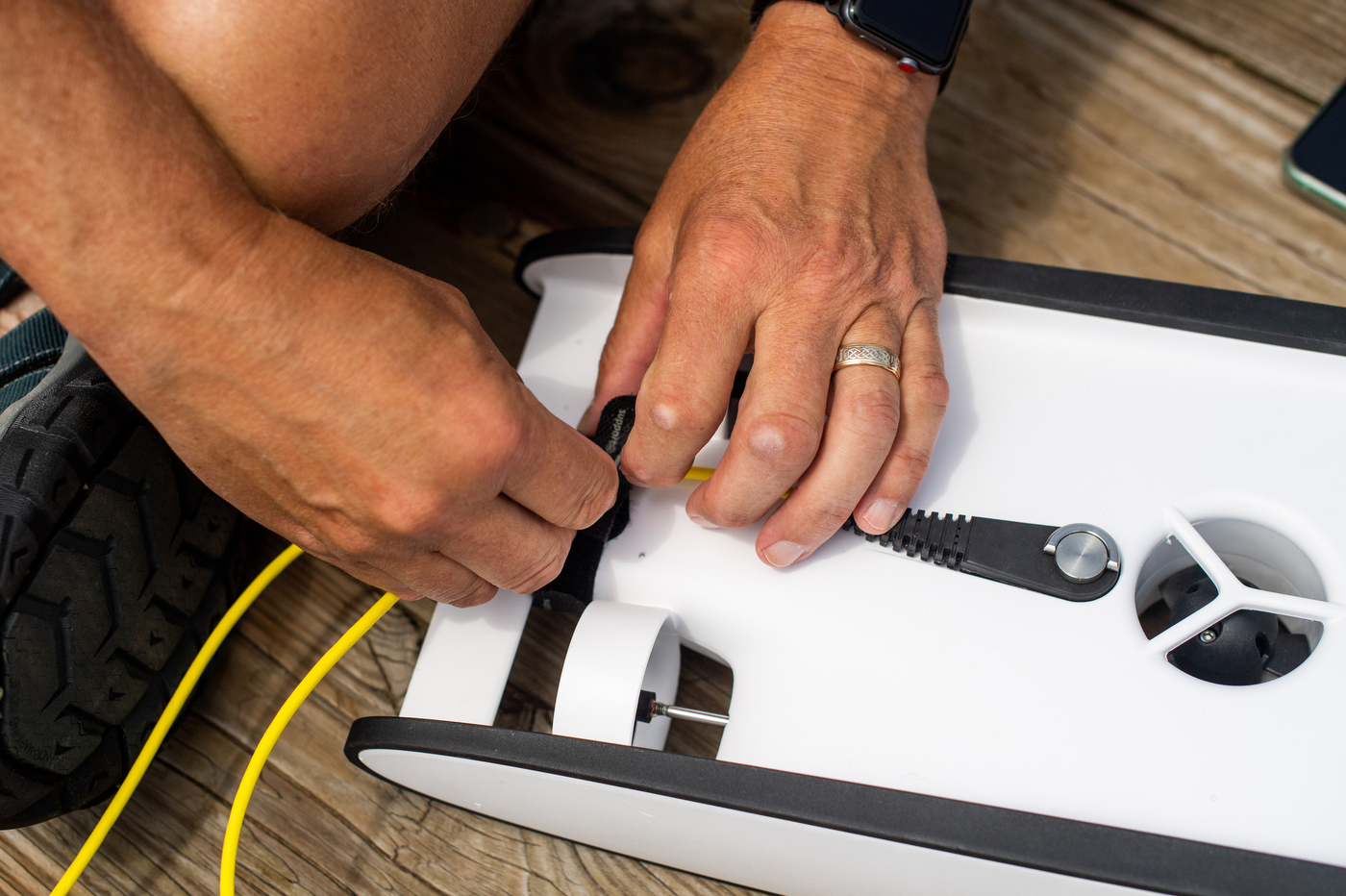
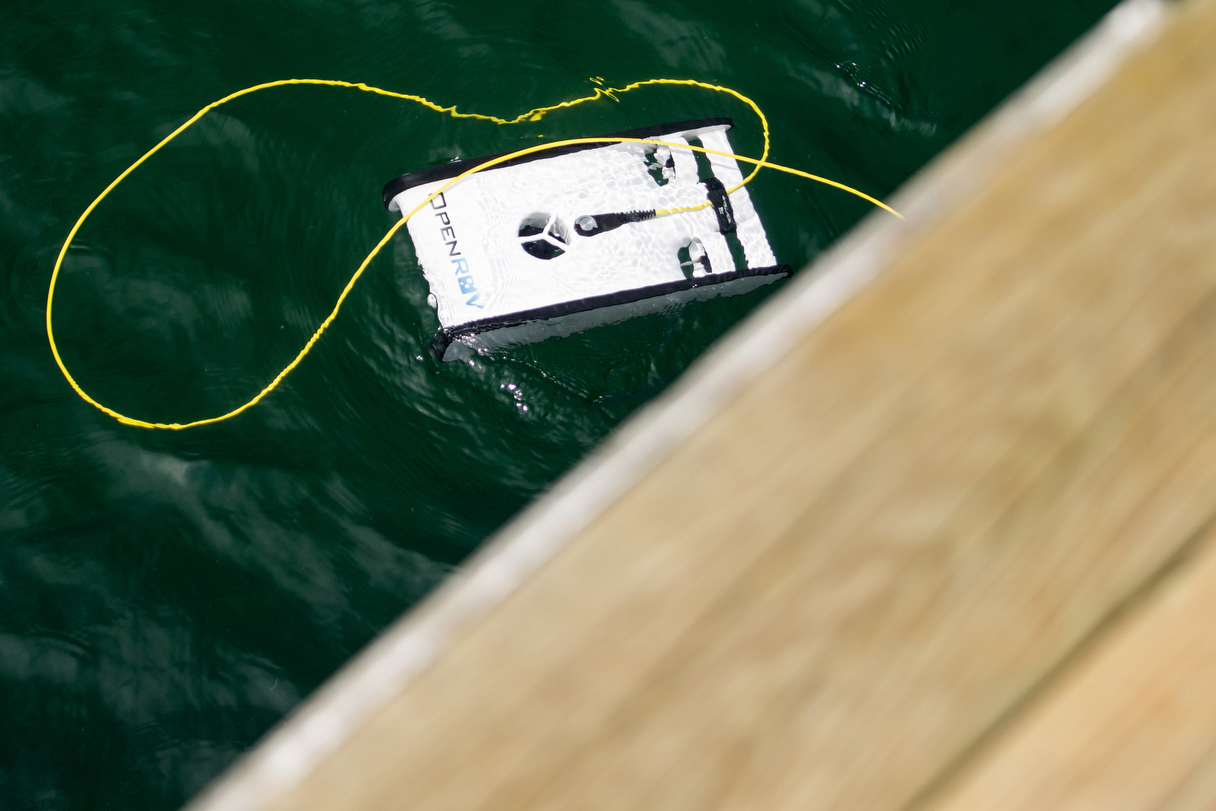
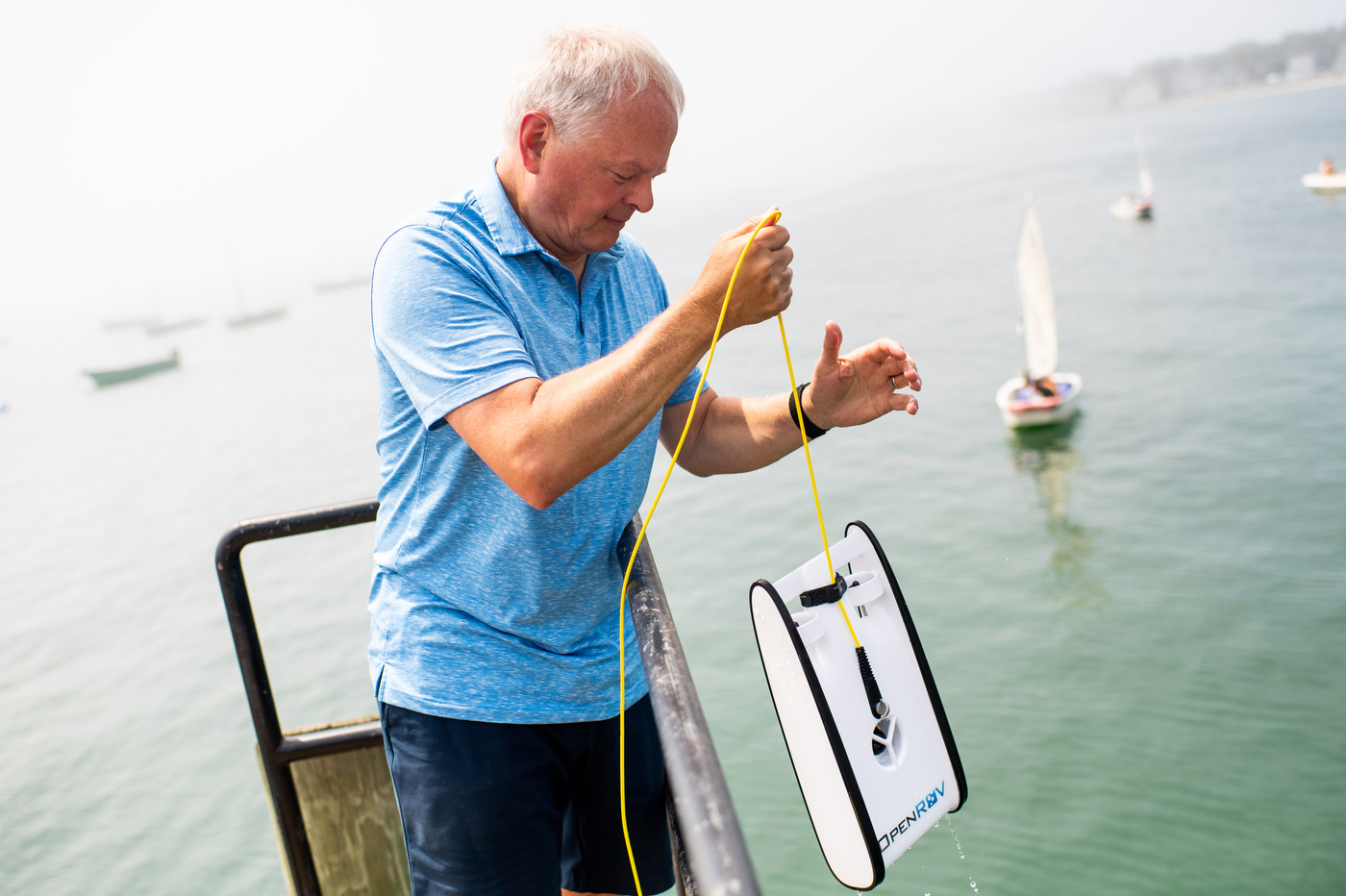
The primary goal of Patterson’s research is to map the kelp forests. “First we need to know where they are,” he says. “Then we can look at how climate change affects the beds. It could be that kelp forests actually expand and do better under this warming scenario in the Arctic.”
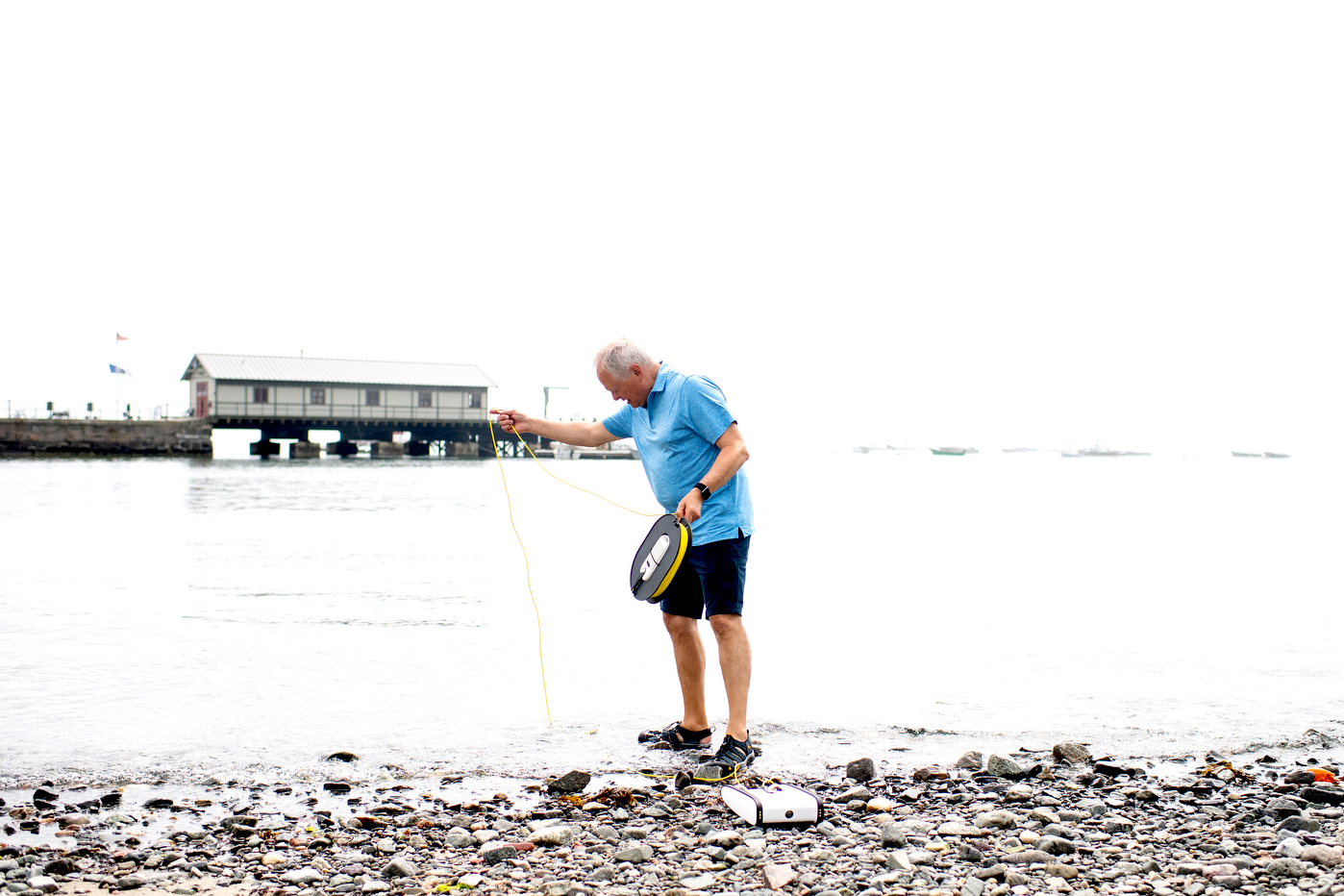
Patterson and his team will also study whether climate change induces large upticks in sea urchins, a species that grazes on kelp. “There are periodic outbreaks of sea urchins where they increase in numbers so quickly that they just mow down entire kelp forests,” Patterson says. “It seems like the frequency of urchin outbreaks is accelerating.”
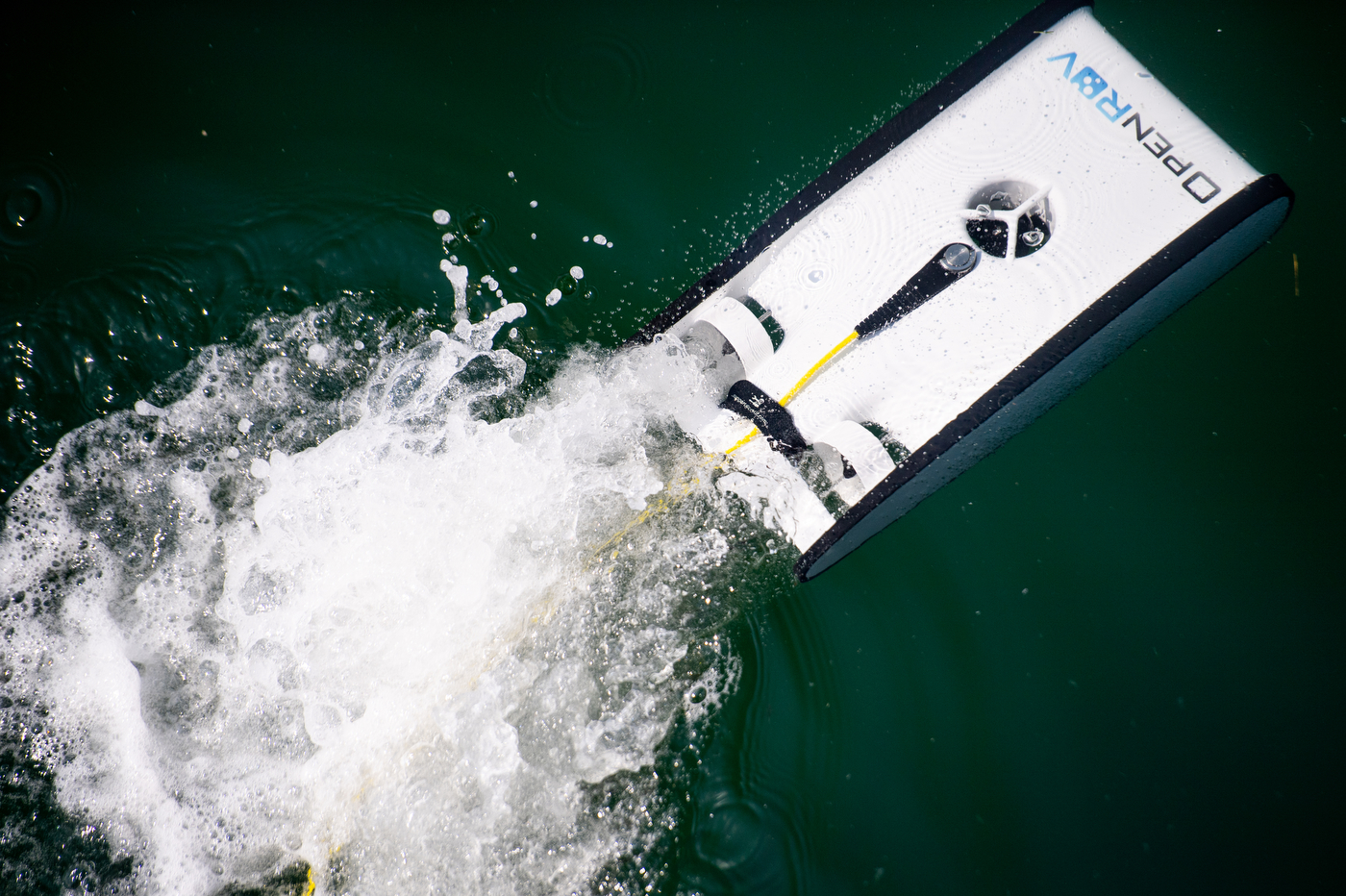
Photo by Matthew Modoono/Northeastern University
Additionally, Patterson and his team will investigate whether changes to the kelp forests affect Canada’s First Nations people, who rely on species that live in the kelp beds for food.
“There are a lot of fish and other species that use the kelp beds as a habitat,” says Patterson. “The Arctic cod are a good example. The First Nations people rely a lot on cod for food.”
Patterson also hopes to involve the local First Nations communities in the research. “I want to let the people interact with the robots,” he says. “I think that’s the fun part. Most people are interested in robots on some level.”
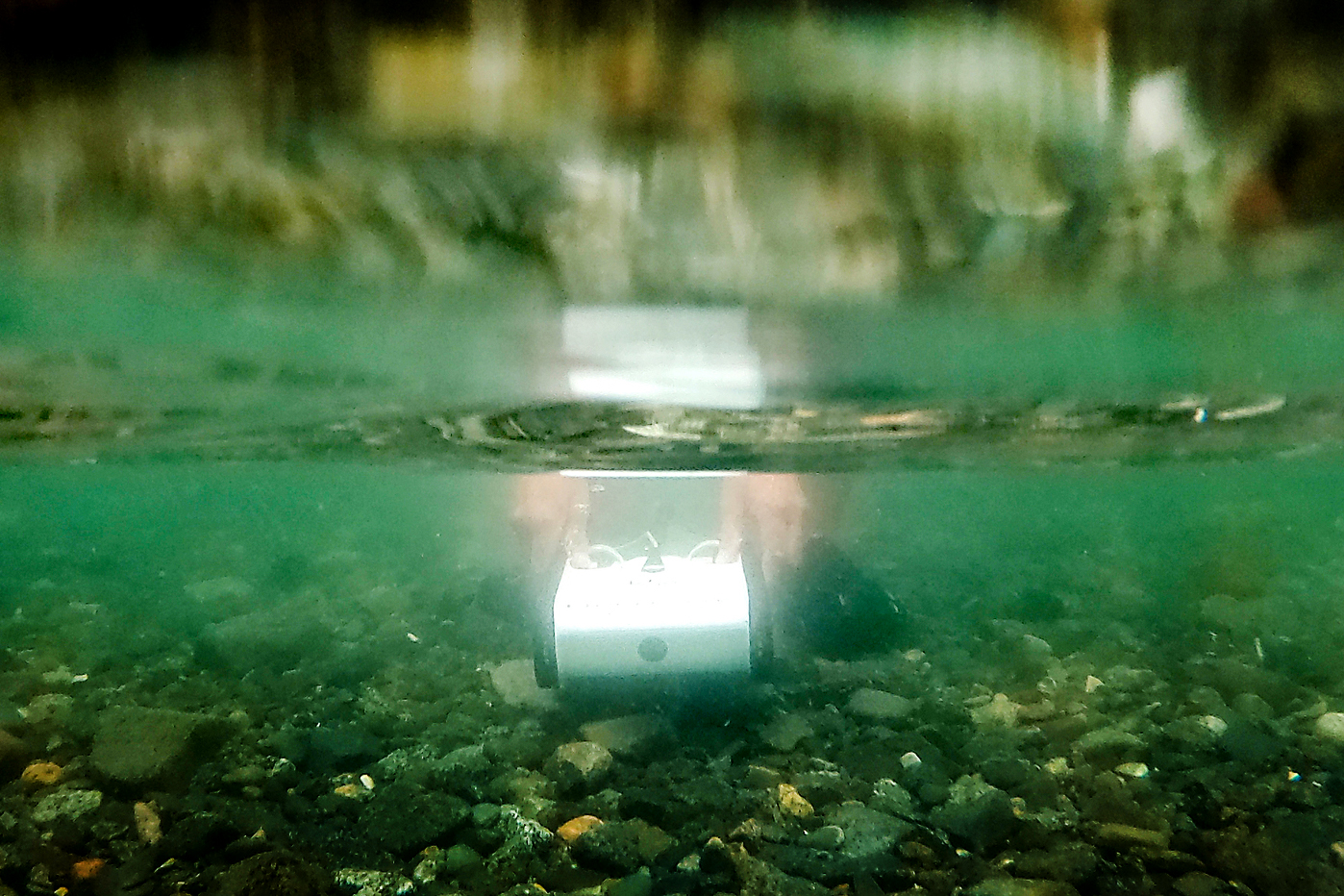
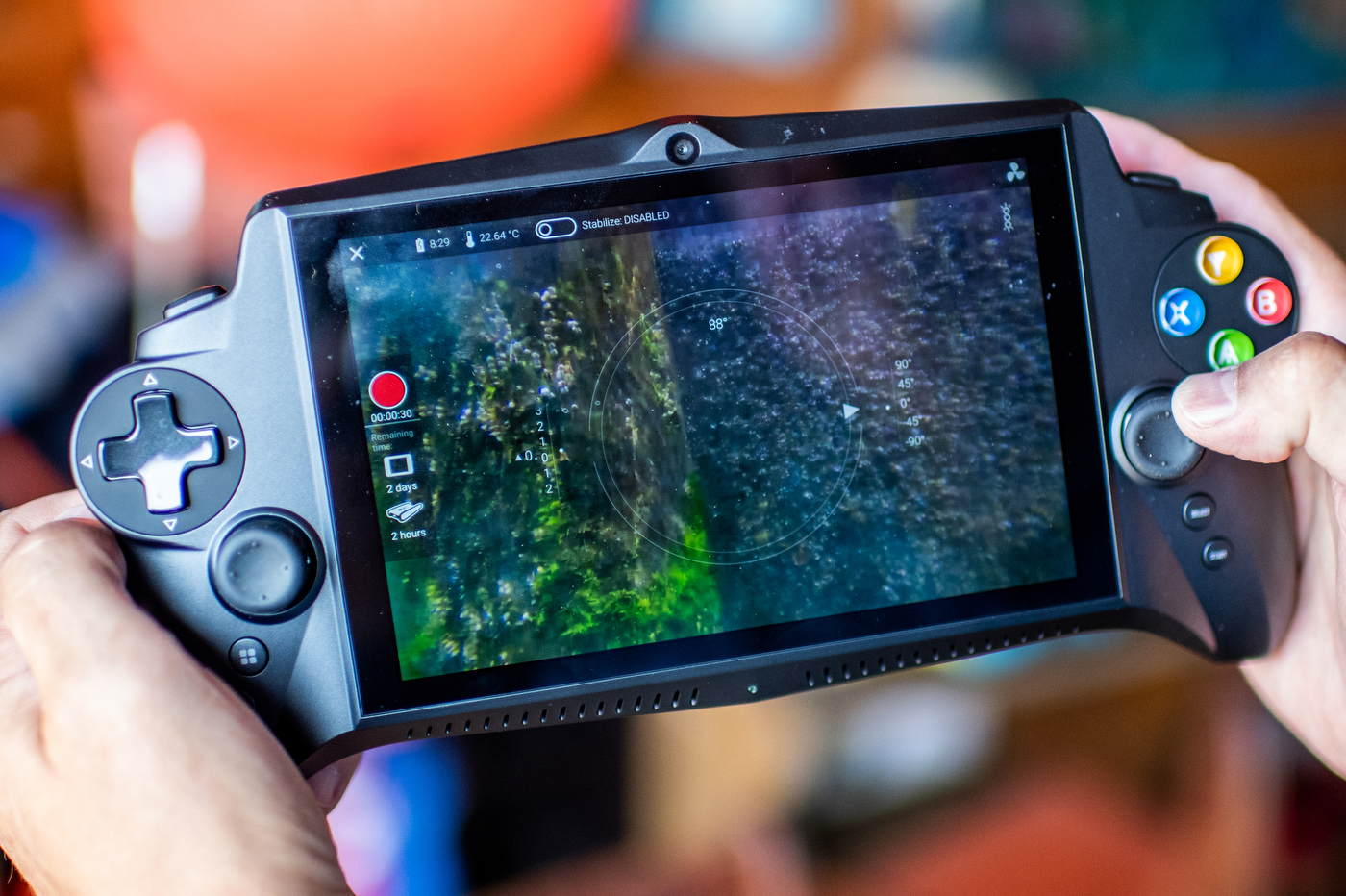
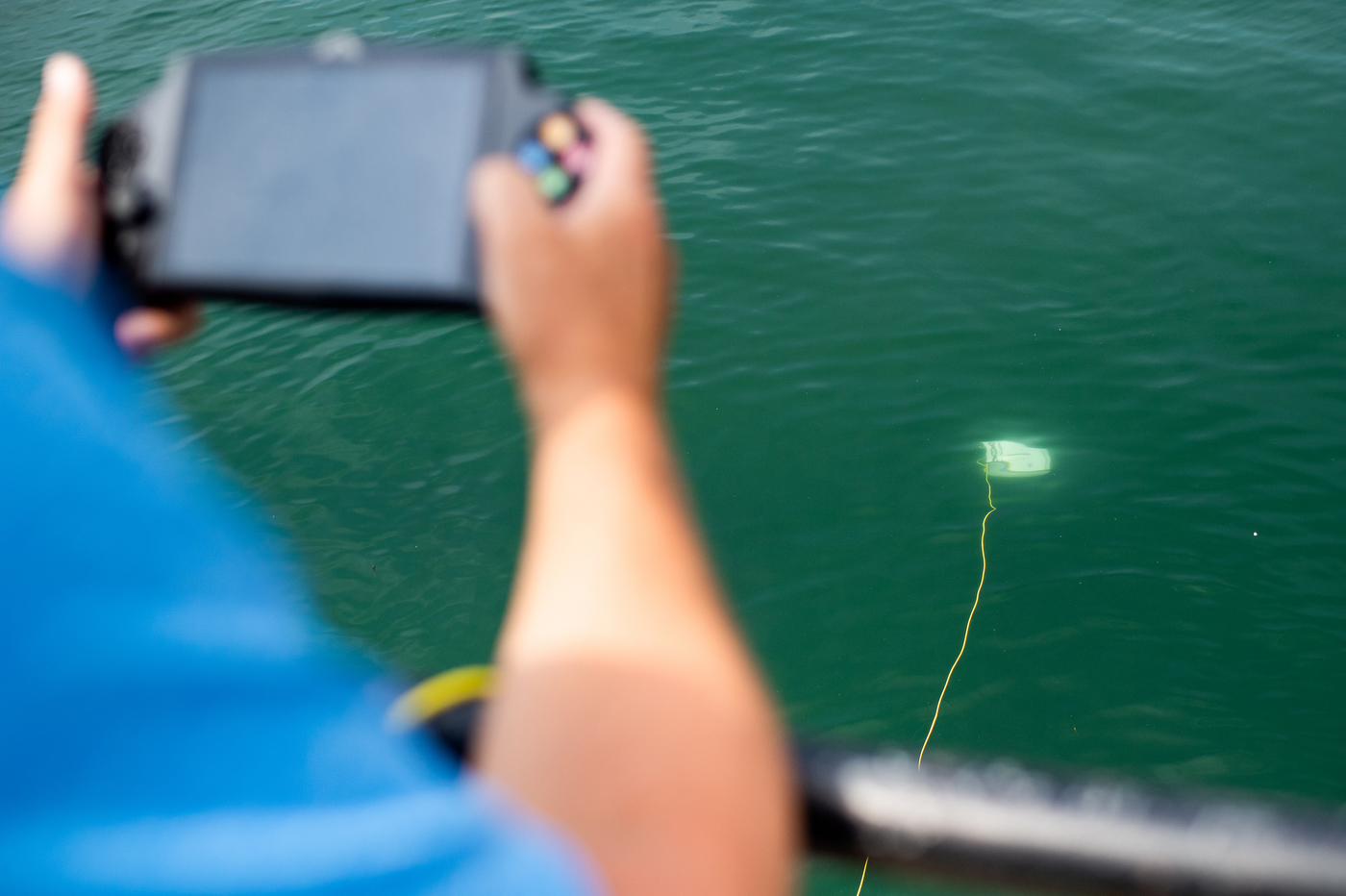
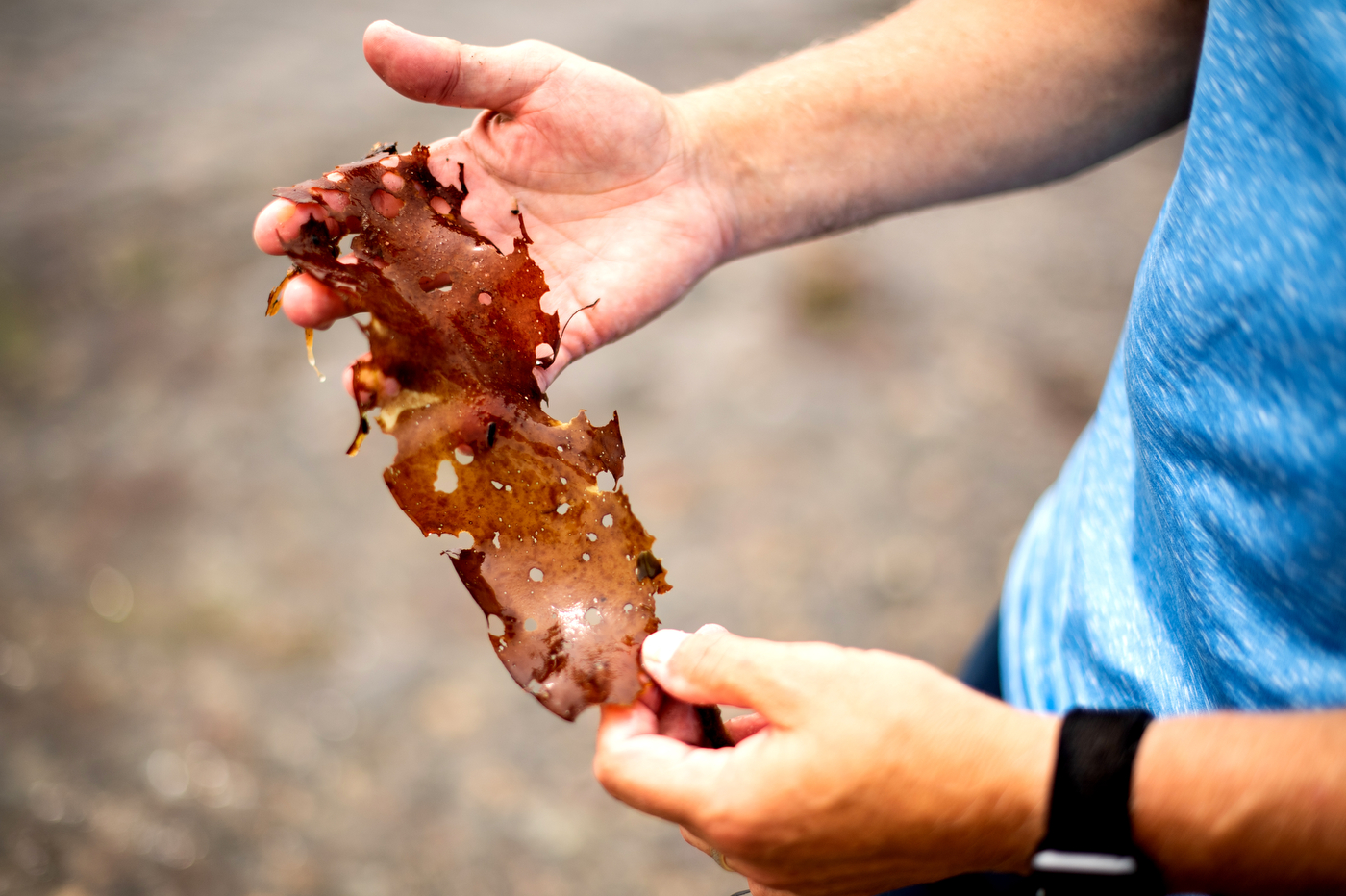
Patterson, who will conduct this research during his sabbatical, is looking forward to living in Canada, where he has family roots. “As a Fulbright Scholar, I’ll be representing the United States, but I’m a dual national, so it’ll be nice to be in my other country,” he says.
“I’ve been brushing up on my French and translating my lectures,” says Patterson, who will also have a research position at Université Laval. “It’s going to be a lot of fun.”
For media inquiries, please contact media@northeastern.edu.

